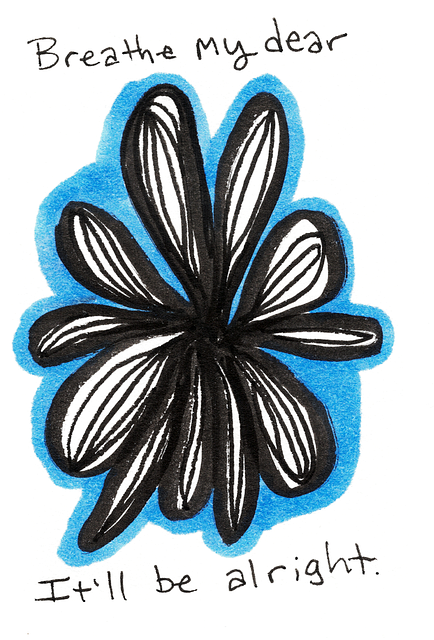In Colorado Springs, the RFM (Resilience, Fitness, Mental Health) framework revolutionizes mental health care for first responders by integrating stress reduction, emotional healing, and conflict resolution techniques. This approach aims to prevent burnout, enhance well-being, and improve crisis management in a city characterized by both natural beauty and urban hustle. Resilience-building exercises and RFM techniques, proven effective in Colorado Springs First Responders Therapy, equip professionals with enhanced coping strategies for high-stress environments. These programs prioritize mood management, confidence-boosting, and mindfulness to strengthen resilience, ensuring first responders thrive in their demanding roles while advocating for improved mental health policies.
In the demanding landscape of Colorado Springs, first responders face relentless challenges that can take a profound toll on their mental health. This article explores the power of RFM (Resilience, Flexibility, and Mastery), a framework designed to equip and support these brave individuals. We delve into the significance of resilience-building exercises tailored for Colorado Springs first responders, offering practical techniques and strategies to enhance coping mechanisms and overall well-being. Discover how implementing effective RFM programs can foster a healthier and more resilient community.
- Understanding RFM: A Framework for First Responder Mental Health
- The Importance of Resilience Building Exercises in Colorado Springs
- Practical Applications: RFM Techniques for First Responders
- Supporting First Responders: Implementing Effective RFM Programs in Colorado Springs
Understanding RFM: A Framework for First Responder Mental Health

In the high-pressure world of first responder services, understanding and prioritizing mental health is paramount. RFM, or Resilience, Fitness, and Mental Health, offers a comprehensive framework designed specifically for the unique challenges faced by Colorado Springs First Responders. This approach recognizes that effective crisis management isn’t just about physical resilience; it’s equally about emotional fortitude. By integrating stress reduction methods, emotional healing processes, and conflict resolution techniques, RFM equips first responders with the tools needed to navigate the often traumatic aspects of their work.
The framework aims to foster a culture of support within these critical services by promoting healthy coping mechanisms and providing safe spaces for debriefing. In light of the demanding nature of their roles, these exercises are vital in preventing burnout and enhancing overall well-being. By focusing on both the mind and body, RFM seeks to revolutionize the way first responders approach their mental health, ensuring they have the resources necessary to thrive in one of the most stressful professions.
The Importance of Resilience Building Exercises in Colorado Springs

In Colorado Springs, resilience building exercises play a pivotal role in equipping individuals, especially first responders, with the tools they need to navigate life’s challenges and traumas. With a landscape that encompasses both breathtaking natural beauty and urban hustle, the city presents unique stressors. First responders, often on the front lines of emergencies, face high-pressure situations regularly, making stress reduction methods and self-care practices essential for their well-being. These exercises foster mental fortitude, enabling professionals to manage stress effectively and maintain emotional balance.
The implementation of resilience training in Colorado Springs’ first responder community acknowledges the profound impact it can have on their overall health and effectiveness. By integrating these practices into their routines, first responders can enhance their ability to cope with adversity, improve decision-making skills, and cultivate a sense of personal resilience. This proactive approach not only benefits individuals but also ensures a more robust and prepared emergency services team capable of responding to Colorado Springs’ diverse needs.
Practical Applications: RFM Techniques for First Responders

In practical applications, RFM (Resilience, Flexibility, and Mastery) techniques have proven invaluable for first responders in Colorado Springs First Responders Therapy. These methods are designed to equip professionals with enhanced coping strategies, enabling them to navigate the high-stress environments they frequently encounter. By fostering resilience, first responders can better manage anxiety relief and improve their mood management skills, both of which are crucial aspects of their well-being.
The integration of RFM into mental health policy analysis and advocacy further underscores its significance. Through these exercises, first responders gain a deeper understanding of their emotional responses to traumatic events. This self-awareness promotes more effective communication when advocating for improved mental health policies, ensuring that their experiences are accurately represented in the broader discussion around public safety and Mental Health Policy Analysis.
Supporting First Responders: Implementing Effective RFM Programs in Colorado Springs

In Colorado Springs, supporting first responders is of paramount importance due to their constant exposure to high-stress situations. Implementing effective RFM (Resilience, Fitness, and Mindfulness) programs has emerged as a game-changer in fostering mental well-being among these valiant individuals. Such initiatives prioritize mood management and confidence-boosting techniques, incorporating mind over matter principles to fortify their resilience. By integrating structured therapy sessions into their routines, first responders can learn effective coping mechanisms, enhancing their ability to navigate the challenges unique to their line of work.
These programs design tailored activities that promote physical fitness alongside mindfulness practices. Regular workouts and mental exercises help reduce stress, improve focus, and cultivate emotional balance—crucial elements for maintaining peak performance. The result is a more robust and resilient first responder community in Colorado Springs, better equipped to handle the demanding nature of their jobs while ensuring personal well-being.
In conclusion, integrating Resilience Building Exercises (RBFEs) into the lives of Colorado Springs first responders is a vital step towards enhancing their mental health and well-being. As highlighted in this article, the RFM framework offers a comprehensive approach to addressing the unique challenges faced by these heroes. By implementing practical techniques and supportive programs, we can ensure that our first responders have the tools needed to navigate trauma and build resilience, ultimately fostering healthier communities across Colorado Springs. Through dedicated efforts, we can provide them with the therapy they deserve and enable them to continue serving with strength and courage.














